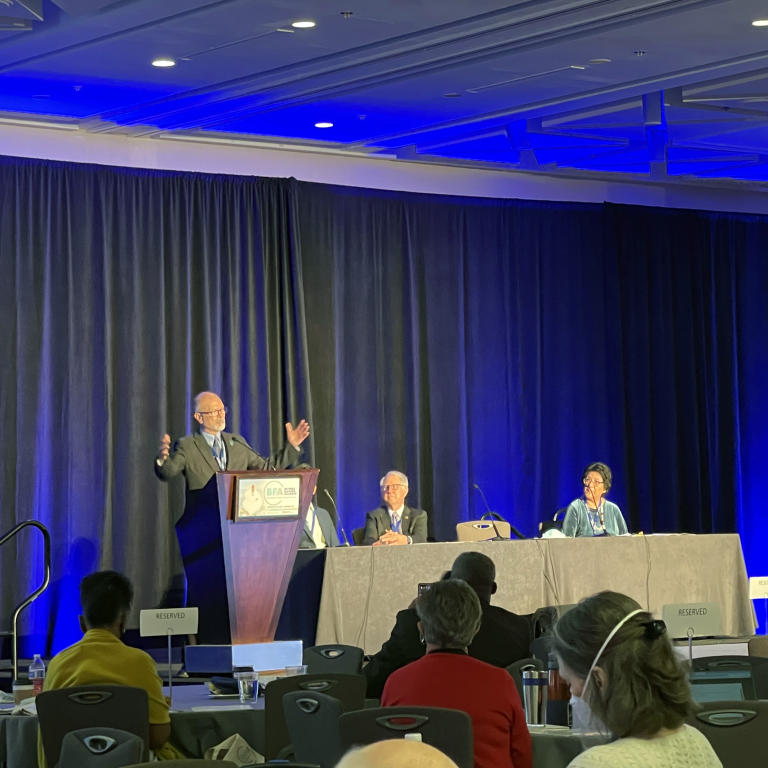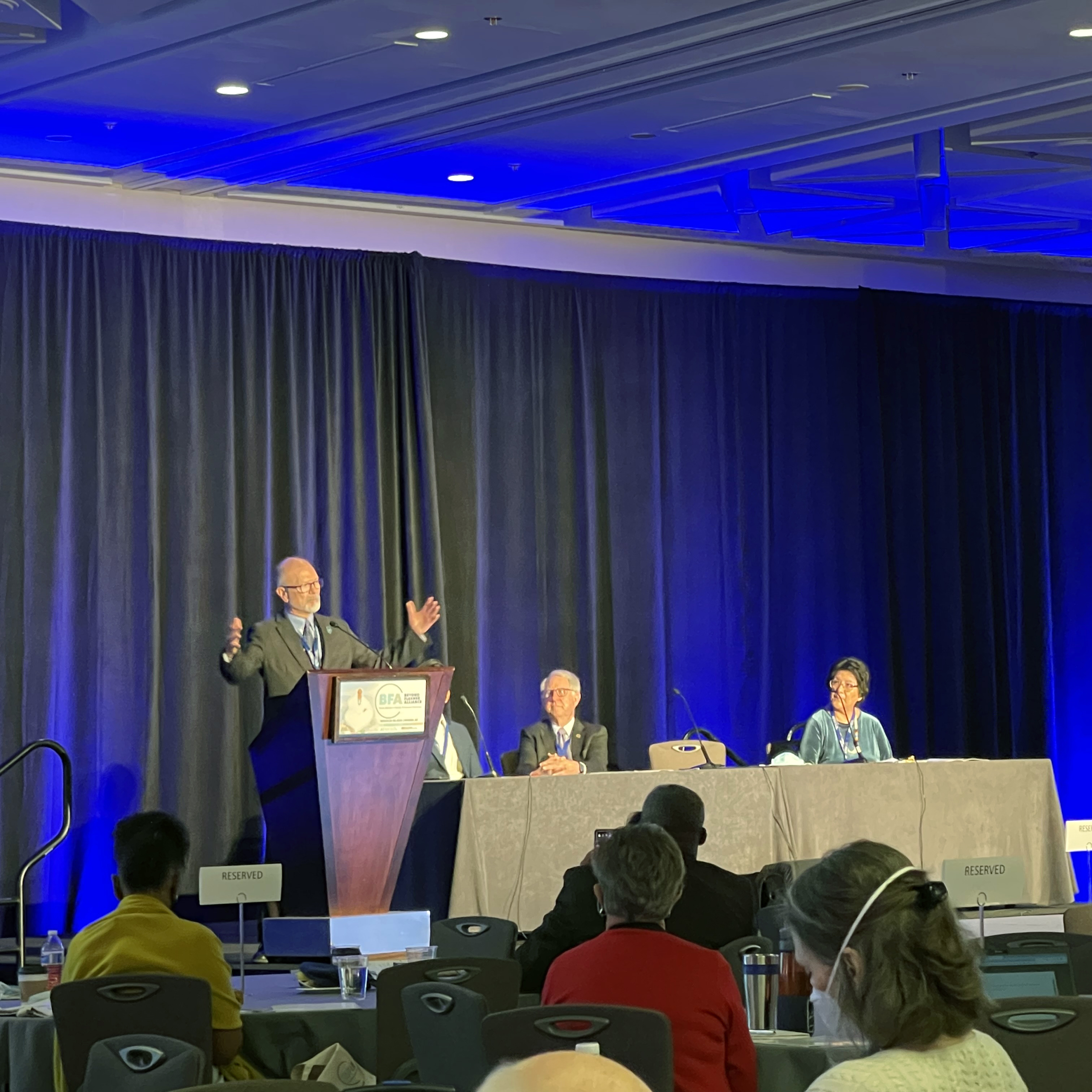Beyond Flexner Conference closes with discussions of culture, race, equity
Posted: March 30, 2022
The 2022 Beyond Flexner Conference, co-hosted by A.T. Still University (ATSU) and Arizona State University’s (ASU) Edson College of Nursing and Health Innovation, concluded Wednesday at the Hyatt Regency in Phoenix.
This year’s interprofessional forum is titled, “Moving the dial on social mission: Ensuring health professions education meets the challenges of today.” The three-day event will feature keynote speeches and breakout sessions, gathering leaders with a goal to bring about meaningful change.
Read below for highlights from Day 3. Click here for highlights from Day 1 and here for highlights from Day 2.
Aletha Maybank, MD, MPH, senior vice president and chief health equity officer, American Medical Association
On ensuring work is done internally for organizations promoting change externally…
“I’m a believer that if you don’t work inside your institution to change how you think, what you do, your mental models, it’s really hard to do equity externally. It’s hard to support a culture that values equity and has transformational change that can happen. That internal work is critical.”
On the importance of cultural change to sustaining structural change…
“There’s a lot of focus and a tendency to focus on the technical processes and structures, which we all know are critical to change, but if your structures are not changing in an environment of which the culture is supporting that change, it’s really hard to sustain those structures over time. We see that right now in our country and in our institutions all of the time.”
On changing the “Black physicians for Black patients” narrative…
“I’m not saying race concordance is a bad thing, but I do think there is an unrecognized burden with that narrative, that is placed upon Black physicians and physicians of color. We need to work toward a healthcare system in which the responsibility in competency to deliver high quality care to all patients is with all physicians, not just just physicians of color.”
Karen West, DMD, MPH, president & CEO, American Dental Education Association
On how to make lasting change in addressing oral healthcare disparities…
“Racial and ethnic disparities exist in oral health. For example, in one study from 2011-2016, 70% of Mexican children ages 12-19 had cavities, as compared to 24% of white children. Low income adults had twice as many mild to moderate untreated cavities, and three-times more severely treated cavities, than middle income adults. American Indian preschool children have the highest level of tooth decay, more than four-times more than white children. The underlying cause of inequality has been suggested to be rooted in structural racism. Anti-racism practices and focus on social and political determinants of health, however, will not take care of everything. Lasting change comes from reimagining healthcare delivery, and integrating medical and dental services, and redesigning a reimbursement system.”
On getting results in health equity…
“Health equity is thought of as being when every person has the opportunity to attain full potential, and no one is disadvantaged from achieving this potential, because of social position or other socially determinant circumstances. When we’ve done this and bridged patient-centered care with cultural competence, we have better patient experiences, better workforce experiences, better clinical outcomes, and better economic models.”
On policy changes to address social determinants of health…
“It is well known that most oral disease occurs in marginalized, underserved groups. Community health centers and dental clinics need to partner to integrate oral, medical, and behavioral care. Preventative services and advocacy efforts to increase availability of those through policy changes are needed to achieve change and address the social determinants of health on all levels of a community, from the individual to the total.”
Keynote speaker Harriet A. Washington, award-winning medical writer & editor
On false narratives regarding hesitancy of African Americans to join clinical studies…
During the COVID-19 vaccine clinical trials, the message every single day…focused on African Americans shunning the COVID-19 vaccine trials. A lot of articles decried it, saying if Black people don’t sign up for these trials, we may not have a vaccine that works for them. They went on and on, and explained African Americans were avoiding it because of the Tuskegee Study. This is not true. We knew it was not true because when COVID trials ended and we saw the data, African Americans had participated in both trials by about 10%. Their population representation was about 13% at that time, so they were showing up for clinical trials. They were there. Why did all the news media and medical media insist they were not. This was nothing more than a continuation of this longstanding mythology that African Americans avoid clinical trials and research, and it is because of Tuskegee.”
On the importance of addressing both implicit and intentional bias…
“I think there is too much focus on implicit bias. I think I understand why. It’s more comfortable to discuss. It’s more comfortable to talk about a bias one is not necessarily aware of, the results of, for lack of a better adjective, innocent misunderstanding, than to acknowledge the existence of biases that are intentional. I don’t think we can afford to ignore the latter. I think we need to address both.”
